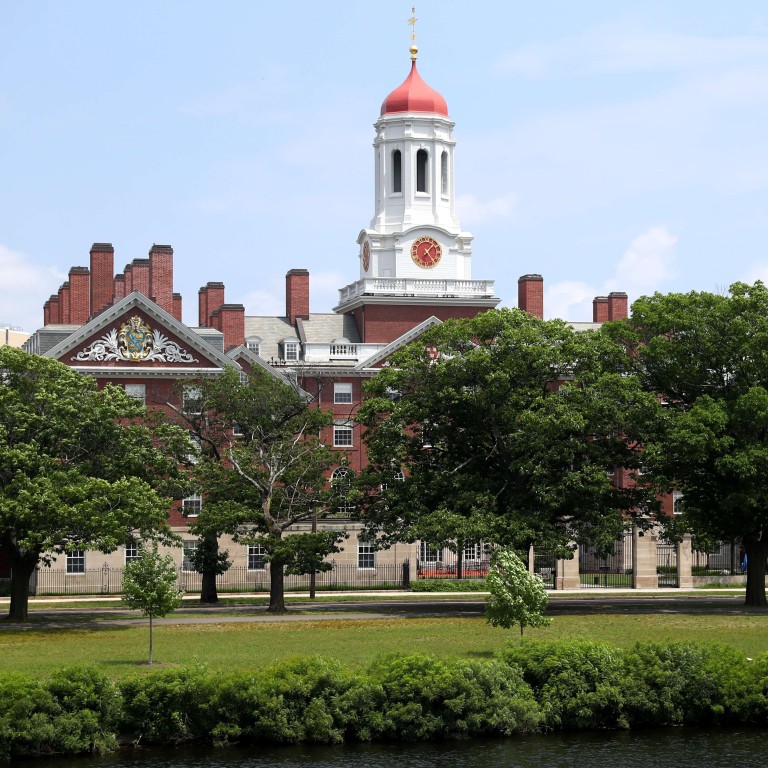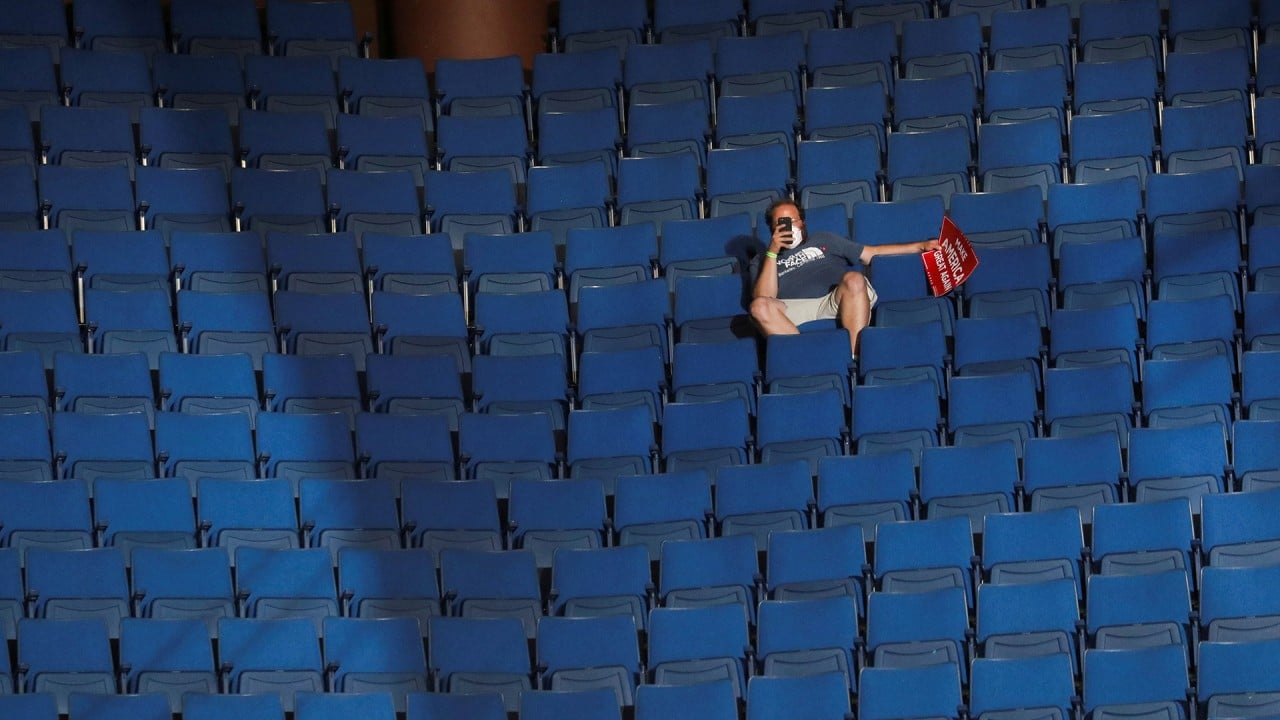
Harvard, MIT sue US for ‘dangerous’ move to banish online-only foreign students
- ‘The effect – and perhaps even the goal – is to create as much chaos for universities and international students as possible,’ the lawsuit says
- The Trump administration has issued an order barring foreign students from remaining in the US if their schools are not holding in-person classes this fall
Harvard University and the Massachusetts Institute of Technology are challenging a Trump administration policy that would bar foreign students from remaining in the United States if their universities are not holding in-person classes this fall.
“For many students, returning to their home countries to participate in online instruction is impossible, impracticable, prohibitively expensive and/or dangerous”, said the complaint, which called the move “a cudgel to compel universities to alter their plans for the fall”.
“The effect – and perhaps even the goal – is to create as much chaos for universities and international students as possible,” the court document said. It also criticised the order for not offering a notice-and-comment period.

The authorities aim to impose stricter censorship on online literature to guarantee it “correctly guides public opinion” and is “healthy and positive”, according to a directive issued by the General Administration of Press and Publication, which added that the government wanted to control the total number of online literary publications.
“Given the internet restrictions in China, students may not be able to do online courses as the administration thinks they could,” said Yun Sun, a senior associate with the East Asia Programme at the Stimson Centre in Washington. “Opening the websites of certain American institutions in China is painstakingly slow, making online video lectures impossible. Some of them are not accessible at all.”
US limits on international visas leave Chinese students unnerved
The outspoken 57-year-old professor, Xu Zhangrun, had been closely watched by Chinese authorities since at least last year for writing essays critical of his government’s handling of the coronavirus pandemic and an article condemning the Communist Party’s decision in 2018 to remove presidential term limits.
“We are deeply concerned by the PRC’s detention of Professor Xu Zhangrun for criticizing Chinese leaders amid tightening ideological controls on university campuses in China,” Morgan Ortagus, the State Department spokeswoman, said in a tweet on Tuesday. “The PRC must release Xu and uphold its international commitments to respect freedom of expression.”
“It is incredibly unrealistic to expect these students to make short-term international travel plans, for themselves and their family members, which are prohibitively expensive, and many destinations remain inaccessible due to closures and restrictions related to the coronavirus,” said Diane Hernandez, an immigration lawyer at the firm of Hall Estill.
“Since US consulates remain closed abroad, it is risky for foreign nationals to leave the US at this time since re-entry is impossible if a new visa is required, and the Trump administration continues implementing restrictions against non-immigrant workers for re-entry to the US,” she said.
The emergency restraining order that Harvard and MIT are requesting on the directive issued by the US Department of Homeland Security’s Immigration and Customs Enforcement (ICE) division would at least temporarily relieve a sense of crisis brewing among their combined international student population of nearly 9,000.

01:42
K-pop fans and TikTok teens troll Trump with fake registrations for first campaign rally in months
Addressing the issue at a regular White House briefing on Wednesday, press secretary Kayleigh McEnany said “the policy speaks for itself”.
“You don’t get a visa for taking online classes from, let’s say, University of Phoenix, so why would you if you were just taking online classes generally?”
The temporary restraining order being sought by Harvard and MIT would also alleviate a substantial bureaucratic scramble: schools offering a hybrid of online and in-class curricula would need to submit a form for each international student intending to remain in the US for those courses.
“We will pursue this case vigorously so that our international students – and international students at institutions across the country – can continue their studies without the threat of deportation,” Harvard President Lawrence Bacow said in a statement.
The order came down without notice – its cruelty surpassed only by its recklessness
“The order came down without notice – its cruelty surpassed only by its recklessness,” Bacow said. “It appears that it was designed purposefully to place pressure on colleges and universities to open their on-campus classrooms for in-person instruction this fall, without regard to concerns for the health and safety of students, instructors and others.”
The rushed nature of the ICE directive, with students’ ability of returning to the US limited by the pandemic, aligns with anti-immigration and nativist goals within US President Donald Trump’s administration and a generally hostile attitude towards “elites”, said Scott Kennedy, a China expert at the Centre for Strategic and International Studies in Washington.
“The Trump administration isn’t concerned about the problems of students from Asia,” Kennedy said. “The purpose of this policy appears to be to force colleges to open up more fully, to reduce the number of international students in the US and to portray the administration as fighting against the ‘liberal elite’.”
Trump paid someone to take his university entrance exam, niece’s book says
ICE’s new policy requires institutions moving entirely to online learning to submit plans to the agency by July 15, while schools planning shortened or delayed classes, or a blend of in-person and online learning, must submit plans by August 1.
McEnany reinforced the Trump administration’s dismissive attitude about the trouble the move will cause.
“Perhaps a better lawsuit would be coming from students who have to pay full tuition, with no access to in-person classes to attend,” she said.
Additional reporting by Jacob Fromer


